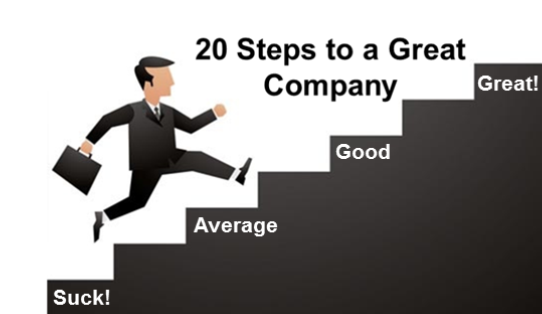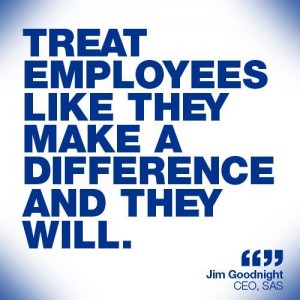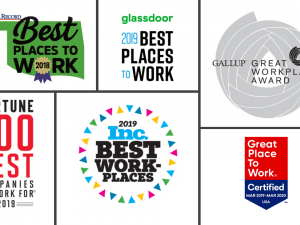
We want to be a great company but we’re not … yet.
On the outside, the company looks good, including leaders, supervisors, employees, processes and policies, products and services, but it’s not a great company for employees. If you are the CEO or top business executive, you may be asking yourself, “Why is our company performing so poorly?”
 After a closer look, you have found that departments are warring against each other, employees are not cooperating or accepting change, and people avoid taking ownership of problems. It’s a real mess.
After a closer look, you have found that departments are warring against each other, employees are not cooperating or accepting change, and people avoid taking ownership of problems. It’s a real mess.
Good things are down. Bad things are up.
Sales are down. Customer complaints are up. Employee energy is down. Turnover is up. Net income is down. Expenses are up. Employee morale is down, way down. Plus a host of other compounding problems.
In other words, you are essentially asking the question, “Why does my company suck?”
Identify your problems.
Assuming you have a halfway decent product or service and a market for your business, below are some statements to help identify business-busting problems. Respond to the following statements with a “Yes” or “No.” Be honest with yourself because it will lead to a bigger profits. Yes answers are good. No answers mean you have work to do.
20 Steps to a Great Company
#1
Employees would say they are treated with trust and respect.
#2
Employees understand the company’s mission.
#3
Leaders work and live according to the company’s values.
#4
Open communication is encouraged.
#5
The CEO communicates the status of the company to all employees at least quarterly.
#6
At least ninety-percent of employees trust their leaders.
#7
The best talent in the industry desire to work for the company.
#8
A sense of positive energy circulates within the company.
#9
Employees consider their leaders to be fair and honest.
#10
Leaders do not manage by fear or intimidation.
#11
Certified jerks and bullies are shown the door.
#12
The CEO is committed to creating a great place to work.
#13
Supervisors show personal concern for the well-being of employees.
#14
Employees are recognized for a job well done.
#15
Leaders are willing to answer hard questions.
#16
Leaders are accessible to employees.
#17
Supervisors are mentors, not bosses.
#18
There is a sense of family and belonging.
#19
Leaders are flexible and allow telecommuting for work/life balance and productivity.
#20
Employees are encouraged to have fun on the job.




